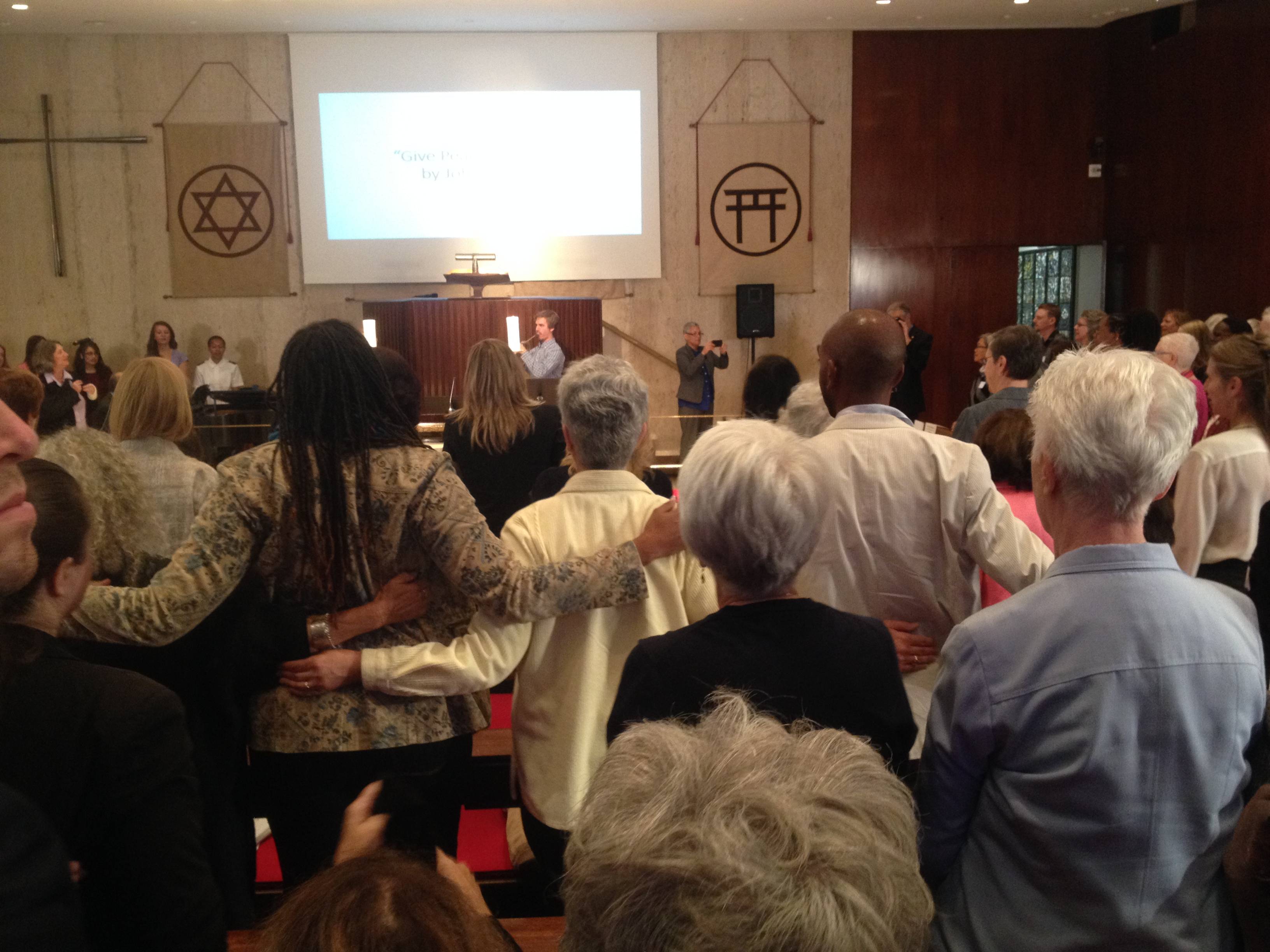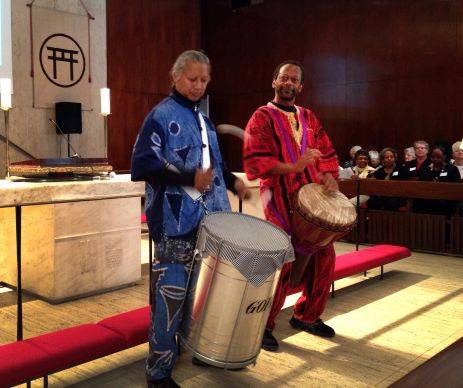Larissa Kwong Abazia, Vice-Moderator of the 221st General Assembly (2014) of the Presbyterian Church (U.S.A.) visited the Presbyterian Ministry at the United Nations for a celebration of the International Day of Peace. Check out what she had to say about her experience.
My congregation and I have been spending the time between September 7- October 5, 2014 observing the Season for Peace. It seemed appropriate after a summer watching headlines from Gaza, Syria, Ferguson, and countless other challenges both near and far. But when we speak of peace, so often our minds immediately go to images of violence and war. People should be able to live in places where the sounds of gun fire aren’t commonplace and daily life isn’t filled with decisions about how to stay alive just to get groceries or go to school. If we value human life, then we must value such a life for all people. There’s no question about that. But last week when I attended the International Day of Peace at the Church Center for the United Nations, I was reminded of the interconnected web that creates peace.
The Presbyterian Ministry at the United Nations was a co-sponsor of the day that focused on these statements: “There is no peace without development. There is no development without peace. What do you think makes for peace?” The chapel of the Church Center for the United Nations filled up with people from different religious backgrounds and organizational involvement. The energy was palpable…we were committed to set aside the daily grind to focus on the call for peace.
The opening plenary included presentations by Helen Clark (UNDP Administrator), Bill McKibben (350.org), Cora Weiss (UN Representative, International Peace Bureau) and Otilia Luz de Coti (Director of the International Indigenous Women’s Forum). From women’s rights to climate change to mobilizing communities and nations, each speaker brought their own unique voice and challenge to the Table.
Following the opening plenary and worship, participants broke up into three different workshops: water, food and health. Notice that none of the workshops were about violence outright, but without access to these basic resources, each can lead to unsettling environments or circumstances. For example, I attended the water workshop and learned about the issues around this basic building block of life. Countries (including ours) make water into a marketable resource, risking the health and wellbeing of many people. Without access to water, people do not have access to peace in their daily lives. They are fighting for something that comes out of many of our faucets without even a second thought. So, because we can access fresh, clean water, can we truly be at peace when so many others cannot?!
At the closing meal and discussion, I found myself sitting with an intern from one of the organizations in the building. This was her first time at an event that was predominately made up of religious communities and she was soaking it all in. She seemed impressed that so many people cared about the variety of issues discussed during the day. It was almost as if she was surprised that we weren’t talking inside of our worshipping communities, but proudly sitting across the street from the United Nations with our own demands for change.
The day concluded with an open forum to reflect on the discussions from each workshop. People shared the passions that drew them to New York City that weekend and the hopes they had for the future, witnessing to justice work right before their eyes. There weren’t any “Pollyanna” statements because everyone knew that the road to change would be hard. The goal was to renew us for this work, taking in the numerous reminders of our call to be peacemakers seriously.
Even if you’re not practicing the Season of Peace, there is still time to lift up this theme as we come to World Communion Sunday on October 5. This is also the World Week for Peace in Palestine and Israel (September 21-27). You can find resources at the Presbyterian Ministry at the United Nations’s blog.
I leave you with the words of Cora Weiss, who said during the event, “Prevent depression: make your own list for the things that make for peace.” Make your list and, when you need encouragement along the journey, be inspired by this video of Suheir Hammad’s “What I Will.”
Thank you to Mark Koenig (mark.koenig@pcusa.org) and Ryan Smith (ryan.smith@pcusa.org) of the Presbyterian Ministry at the United Nations for making this day possible! If you’re looking for a way to get your congregation to look outside of its walls or educational opportunities about needs around the world, get in contact with their office. It’s an amazing resource of our denomination!

